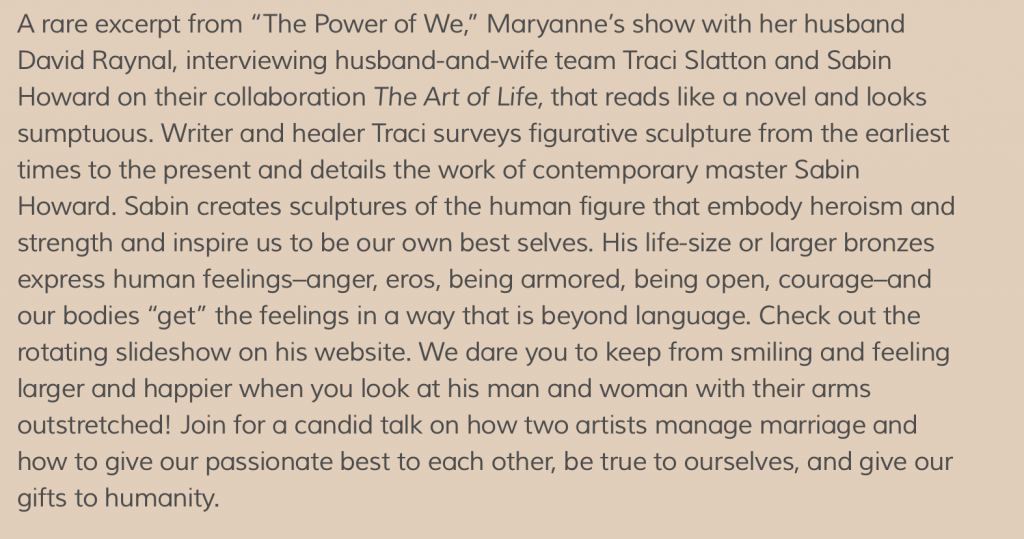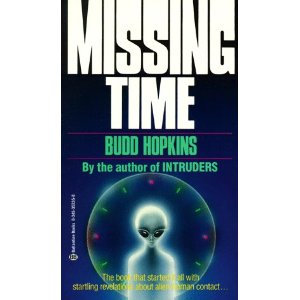ePublishing, Self-publishing, and Legacy Publishing: the Folly and the Glory
Of this I am sure: I love story. I love books.
It is my particular karma to be both on the inside and on the outside of a number of groups. For example, I was born Christian and converted to Judaism. I can talk about both anti-Semitism and anti-Goyism. They both exist. Both are horrible. But many Christians don’t want to hear about anti-Semitism, and most Jews don’t want to be confronted with anti-Goyism. One virulent version of anti-Goyism is anti-Schicksaism. I can tell you a lot about that.
So now my great passion: story, writing, books. And, naturally, publishing, which is the only way to reach people with the work.
We are on the verge of the greatest revolution in publishing since the invention of the Guttenberg Press five hundred years ago. ePublishing has taken control of distribution away from the legacy publishers, which is a wonderful thing. Monopolies are bad. Opportunities, choices, options are good. Especially for the consumer.
Legacy publishers are in trouble. There are solid reasons why they are foundering: they are gate-keepers instead of gate-openers serving the reading public; they take too long to read manuscripts and to respond to the market; they function via committee-mind and group-think, so they are averse to risk, originality, and innovation; they are looking for an algorithm to turn every book they publish into a best-seller; they lack the foresight and vision to nurture mid-list authors (like myself) through a career that gains traction and a global readership; they publish the same book in slightly different format over and over, beating that dead equine into a gelatinous pulp and boring readers into apathy. Editors aren’t editors anymore, they are flunkey marketers serving the almighty marketing department. PR departments at major publishing houses are incompetent and exist only to thwart authors’ sales.
Legacy publishers are dinosaurs. They are mired in the quicksand of conventional thinking. The system is broken.
For all of these reasons, and more, excellent books are not being picked up by the legacy publishers. So other venues have arisen, particularly now that ePublishing has arrived. Kindles, iPads, and nooks abound, crying out for content. The stigma of self-publishing is lessening–a “vanity press” isn’t considered quite so vain anymore. ePublishing is a huge gain for the demotic. Authors can get their work out to the buying public and let the market decide. Everyone in self ePublishing likes to point to John Locke as an example.
I had two books go through a difficult process, both agented by first-rate, well-regarded NYC literary agents. Both projects were “almost bought” a number of times. Then my agent wanted me to publish with the new ePublishing arm of her agency. I would pay for the privilege, and then give her 15% of the proceeds.
It is unethical for literary agents to publish this way. There must be a separation of church and state, a separation of agenting and self- or ePublishing. If agents want to ePublish: fine! Great! Stop agenting and be an ePublisher. But doing both is a conflict of interests, and it is unethical.
I had already done a lot of research into ePublishing and I knew the scoop, so I politely declined the agent, whereupon she dumped me. I was hoping she would continue with foreign and sub-rights, because my novel IMMORTAL was a big bestseller in Italy, Brazil, and Russia, and there’s a good bet that foreign editors would be interested in my new work. I love foreign rights sales. They’re like money from Heaven. You’ve already written the book, and you get more money for it!
So I went looking for another agent to handle foreign and sub-rights.
I found two groups of agents: one who was stuck in the clubby, outmoded, legacy publishing mold. You know, they go out for lunch and drinks with editors at major publishing houses four or five days a week, and those editors read their submissions first and fast. If the editor falls in love with the manuscript, AND can sell it to a committee of other editors terrified to lose their jobs, AND THEN can sell the project to the marketing department–the project is a go. The agent makes a sale. The agent takes the commission.
That’s an old system that has worked well for agencies like Inkwell, Sanford Greenberger, Sterling Lord, etc. Those agencies are not open to alternatives. They are not getting it that a change is afoot. And why would they? They were very successful with the antiquated model. Well, Sanford Greenberger is making changes, but they are doing one of those unethical ePublishing scams. Not okay.
Then there are agents who say, “Ok, the publishing world is changing, so we have to, also.” They see the benefits of being flexible. They understood why my logic led me to the necessity of an agent to handle foreign and sub-rights. These agents get it that the publishing world is changing, and they must change, too.
So there’s my critique of legacy publishers like Random House and Hachette, and my critique of agents. Here’s my analysis of self ePublishers. When the legacy publishing system didn’t work for me, I went that route. I have some things to say about it.
There’s satisfaction, even pleasure, in the guerrilla warfare of independent ePublishing and POD publishing. It suits a maverick like me. It’s a great feeling to believe in my own work strongly enough not to let the legacy publishers tell me “You can’t.” I am really happy to have the opportunity to put my work out into the world. This is a great venue for a fast-writing, versatile, pathologically persistent author like me.
But there are some issues in the field. For one, everyone thinks they can write a book. Maybe they all can. There are a lot of really smart, well-educated, well-intentioned people who have been successful in a non-literary field who think, because of their vast money or worthy accomplishments, that 1, they know everything about everything, or 2, they know everything about writing a book. They flock to self ePublishing when their manuscripts aren’t professionally polished enough to get a nod from a legacy publisher.
So in the world of self ePublishing, there are a number of writers who think they have the answers, because they were successful lawyers or business people, who are actually rookies when it comes to publishing. I understand the slight–mostly unacknowledged–contempt that legacy publishers have for self-published authors.
As a professional dictum: what every self-published author must do is 1, hire a professional manuscript editor, and 2, hire a copy-editor. This separates the amateurs from the professionals. It makes for professional integrity.
I get a lot of flak from these self-published know-it-alls when I say this. I have heard a number of completely wacky excuses about why these self ePublished authors don’t need an editor. “I believe in the art of novel writing,” one author said. Another claimed, “I was a successful XXX. My wife taught for many years. I don’t need an editor.”
The fact is that good editing makes a great novel. It makes a professional novel.
Joyce Carol Oates gets edited. I know, because I know her editor. Steven King gets edited. Emma McLaughlin and Nicola Kraus get edited. P.C. Cast gets edited. John Grisham gets edited. Daniel Silva gets edited. With all due respect, no self-published author is better than these writers.
Self ePublished authors are, by and large, nice human beings, as I’ve encountered them. But most shouldn’t quit their day jobs. I said to a small group of male self-published authors, “There isn’t a writer alive who doesn’t need an editor. Period. It’s an absolute value. To think otherwise is bush league…. It depends on whether you want to play in the major leagues or the minor leagues. If you want to play in the major leagues, you do what the major league players do.” I then mentioned a famous, gazillionaire author who I know gets extensive editing.
This ruffled feathers, since it punctured some egos. That vanity thing, in the field of vanity publishing. But it’s not confined to publishing. There’s just a lot of this: people who are successful in one field who then think they are awesome in another field. It’s a form of narcissism. Our culture is rife with narcissism. A touch of narcissism, when it drives people to perform well, isn’t all bad–but that’s tangential to this discussion.
My beef with it here is that sloppy, unprofessional books degrade the entire field of self-publishing.
This doesn’t mean that there aren’t terrible editors out there. I could tell some stories…. There are also great editors who make icky mistakes. It’s a really delicate art to edit someone else’s work.
However, it is an essential, integral art. It is an essential, integral part of the publishing process–if the author wants a professional book.
But self ePublishing is filled with narcissistic amateurs who can’t take criticism, and think they don’t need it. They are fools. A smart writer knows to get an editor.
The self-ePublishing people love to point to John Locke. But for every John Locke, who has made millions of dollars selling 99 cent ebooks and then was offered a great contract by a legacy publisher, there are ten thousand wannabes who are never going to attain that.
And what legacy publishers do well is get books into every airport kiosk in the country, from Boise to Newark to Fort Lauderdale. I will tell you honestly: to have someone give you many thousands of dollars UP-FRONT for your novel is the greatest feeling in the whole world. It’s a home run with the bases loaded.
It’s also much easier NOT to have to attend to manuscript editing, copy editing, cover art, cover copy, layout, PR, and sales yourself. I mean, I can do it–it’s not rocket science. No matter what the legacy publishers want people to believe, publishing a book well is NOT an arcane science accessible only to a few.
But it does take me away from what I love doing, which is writing stories.








